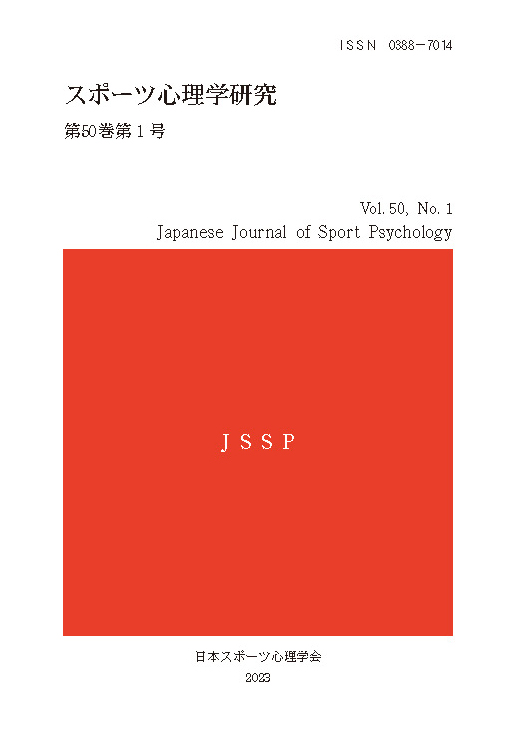Volume 50, Issue 1
Japanese Journal of Sport Psychology Vol. 50, No. 1
Displaying 1-2 of 2 articles from this issue
- |<
- <
- 1
- >
- >|
Original Article
-
Article type: Original Article
2023 Volume 50 Issue 1 Pages 1-19
Published: March 31, 2023
Released on J-STAGE: May 10, 2023
Advance online publication: January 28, 2023Download PDF (1018K) -
Article type: Original Article
2023 Volume 50 Issue 1 Pages 20-30
Published: March 31, 2023
Released on J-STAGE: May 10, 2023
Advance online publication: February 05, 2023Download PDF (671K)
- |<
- <
- 1
- >
- >|
